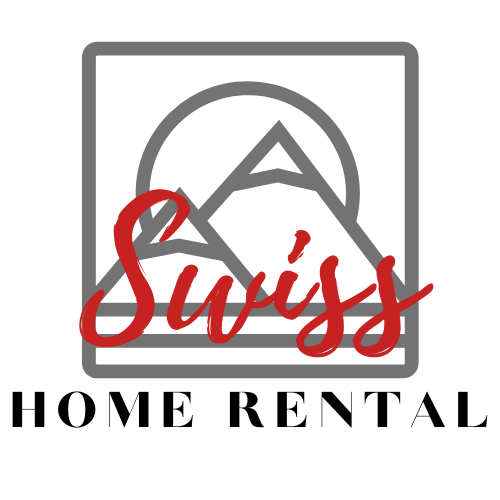Discover Ticino, the reasons to travel and live in south of Switzerland
Everything You Wanted to Know About Living in Ticino, Switzerland
In this surprisingly temperate Ticino region, Italian is the official language and the waters of the Mediterranean Sea are within easy reach, as are the world-famous ski resorts of the Swiss Alps. In contrast with Switzerland’s popular image as a wintry paradise, this magical landscape is flooded with sunshine around 300 days out of the year, and the southern region of Sottoceneri is most heavily influenced by Italian culture. The terrain is varied, ranging from breathtaking peaks to valleys rich with natural-growing palm trees and bamboo. Enhancing the lush beauty of this unparalleled setting are gardens overflowing with bougainvillea, rhododendrons, magnolias, and citrus fruit. The delightful climate encourages enjoyment of the outdoors and watersports on Ticino’s gorgeous bodies of water—Lake Maggiore and Lake Lugano—as well as Lake Como, just across the border in Italy. Adventurers also indulge in canyon exploration, paragliding, parachuting, mountain biking, and many other activities.
Where Is Ticino located in Switzerland?
Bordering Italy, Ticino is the southernmost canton of Switzerland.
Lugano
The picturesque community of Lugano rims Lake Lugano and thrives on a lively atmosphere with festivals, markets, and unspoiled charm. While this marvelous city is known to attract tourists and luminaries, it is also Switzerland’s third largest banking center, with an active industry in the financial sector. Even so, Lugano enjoys a special tranquillity. The smaller town of Ascona is a gorgeous holiday destination, where restaurants and bars line a well-known lakefront promenade. Ascona is also home to three of Switzerland’s most recognized five-star hotels. A yearly jazz festival creates excitement in this hamlet on the shores of Lake Maggiore. Sheltered from extreme weather by the northern mountains, Locarno offers prime vistas of Lake Maggiore and examples of spectacular architecture that include Castello Visconteo. A unique Swiss-Italian flavor infuses this village, whose Piazza Grande hosts the momentous Locarno International Film Festival each summer. World-famous music artists grace the stage during the Moon and Stars festival.
Milan
The international metropolitan center of Milan is less than an hour away from Ticino. Also nearby is the city of Zurich. Lugano features an active economy, business centers, an international school, and a regional airport. A secure atmosphere and comparatively low crime rate give the canton further appeal for visitors and those in search of either a permanent residence or a home away from home.

Climate
Recording an average of more than 2,300 hours of sunshine per year, Ticino is known for its agreeable weather: protected by the Alpine chain, and with a temperate climate, the area enjoys mild winters and typically Mediterranean summers. Ticino is the region with the richest vegetation in Switzerland: the land is teeming with vineyards – particularly Merlot grapes – and there are even some olive trees in the sunniest areas. The valleys, on the other hand, are dominated by chestnut, hazelnut and walnut trees, and Alpine conifers, together with beech, oak and pine groves.
Cost of living in Ticino
Standard costs:
Espresso coffee: CHF 2.50
Pizza and soft drink: CHF 20.-
Hairdresser: women, from CHF 70. – ; men, from CHF 30.-
Cinema ticket: CHF 17.-
Milk (1L): CHF 1.20
Bread (1kg): CHF 4.-
Rent for studio apartment: CHF 800.-
Rent for room in shared apartment: CHF 650.-
Rent for 50 m2 apartment: from CHF 1200.-
These prices are merely indicative and may vary depending on the location. Rents in the outskirts are usually cheaper than those in city centres.
Exhibitions and events
Ticino offers many fantastic opportunities to pursue cultural and artistic interests: cinema, art-house cinema, theatre seasons, music and dance performances, museums, art and culture festivals, sector-specific fairs, folkloristic shows and many other unmissable events.
Thursday is the best day of the week for those looking for nightlife: shops remain open until 21:00, so you can go shopping by starlight, and enjoy the tempting aperitifs offered by shopkeepers.
To ensure that you don’t miss anything, here is a short list of the main events and activities in the course of the year, some recently established and others traditional:
- February– Carnival
- May – Wine Cellar Open Day
- June / July –Festival of pop, rock, jazz and classical musical, held in city centre locations
- August – Locarno Film Festival
- September / October– Grape Festival, Chestnut Festival and Autumn Festival
- December – Christmas Markets and other events

Cuisine
Ticino cuisine is related closely to Lombardy cuisine, and, like all regional gastronomic traditions, is the product of a continuous process finely balanced between developing new ideas and maintaining old-style recipes, using traditional and natural products to prepare simple dishes strongly linked to the rural world, and giving preference to tasty flavours.
The most well-known and best-loved dishes from Ticino cuisine include minestrone, pumpkin soup, busecca (tripe soup), risotto, roast meat (rabbit, goat) stewed or casseroled, polenta with mortadella or braised meat, river or lake fish, and last, but not least, cheeses. Local cakes and desserts are excellent: tortelli (sweet fritters), bread cake and amaretti (almond biscuits).
Beverages include the popular lemonade, red, white and rosé wines, and grappa and ratafià (also known as nocino), a walnut-based liqueur.
Interesting fact
“Grotti”, quintessentially Ticino structures, are simple restaurants, usually located in shady, out-of-the-way areas.
They were our grandparents’ “refrigerators”, now transformed into restaurants open to the public, and usually furnished with granite benches and tables for eating outside. They are synonymous with home cooking, and provide simple, local dishes like those mentioned above. Wine is usually served in a traditional ceramic jug or cup.

